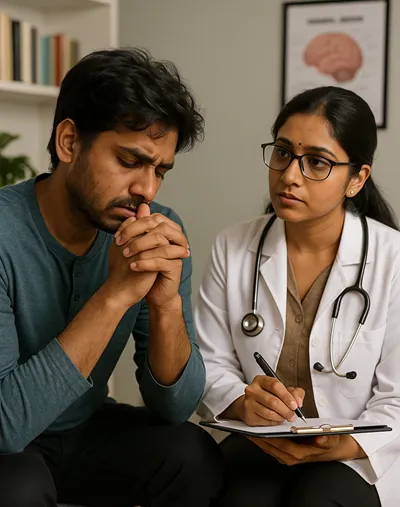
The Mental Healthcare Act – 2017 is an Indian law that would talk about the rights and dignity of people suffering from mental illness. It would ensure access to proper mental healthcare and give the individual the choice of treatment.
Key Highlights
- Right to Mental Healthcare: A right to affordable and good-quality mental health services availed without discrimination should be there for everyone.
- Consent and Choice: Patients are allowed to take their treatment decisions or appoint an agent to take those decisions on their behalf.
- Decriminalised Suicide: If a person tries to die by suicide, it becomes a mental health issue instead of a crime. Hence, they are entitled to care and support.
- Prohibition of Inhuman Treatment: No person with mental illness could be chained, abused, or treated cruelly by anyone in any condition.
- Government Responsibility: The government must provide free mental health care for the public hospitals, having adequate mental health professionals and facilities.
- Advance Directive: This can be used to write down a person’s future manner of treatment for suffering from mental illness in the future.
FAQs – Mental Healthcare Act, 2017
-
1. What does The Mental Health Care Act, 2017, protect?
-
The Mental Health Care Act of 2017 is legislation that protects the rights of people suffering from mental illness and provides them, in India, with suitable care, dignity, and assistance.
-
2. Who is considered a person with mental illness under this Law?
-
Under this law, an individual suffering from a mental condition that lowers his ability to think, feel, behave, or function ordinarily, like depression, anxiety, schizophrenia, bipolar disorder, etc., is a person with mental illness.
-
3. What are the rights under this Act?
-
People with mental disorders are entitled to rights:
Fair and adequate care
Respect and dignity
To make decisions regarding treatment if he is in a sound state of mind
To appoint a representative to make decisions on his behalf -
4. Are the mental health services provided for free according to the Act?
-
Yes. Free mental health services must be provided by the State in public institutions, especially for the destitute or homeless population.
-
5. Am I under the threat of being subjected to forced treatment?
-
Yes, under certain circumstances. If the person is making decisions, she is not subjected to forced treatment. But if the patient is dangerous to self or others, the treatment is given after due process.
-
6. Can I express my choice of treatment in advance?
-
Yes. You can write an Advance Directive indicating what kind of mental health treatment you would like to receive or not receive in the future.
-
7. What is a Nominated Representative?
-
This is someone you trust – a family member, a friend, or anyone else – who can make decisions about your mental health treatment when you are unable to do so yourself.
-
8. Does Attempted suicide become a crime in India?
-
The Act decriminalises attempted suicide. Under no circumstances, therefore, should a person attempting such a step receive punishment; rather, he or she should be taken care of.
-
9. Can mentally ill patients be chained and isolated?
-
Not at all. The law forbids all kinds of inhumane treatments, such as chaining, beating, etc., without any substantial cause.
-
10. What happens to children and women with psychiatric disorders?
-
The law affords them special protection in terms including, but not limited to, the right to education (for children) and protection against any kind of maltreatment (for women).
-
11. Is it acceptable for employers and institutions to consider mental illnesses in cases of discrimination?
-
No. The law prohibits discrimination against persons suffering from mental disorders with respect to employment, housing, education, or any other service.
-
12. May I see my mental health records?
-
Yes, the patient may access his or her mental health record unless the doctor decides that this would be harmful to the patient.
-
13. Who checks whether the law is being enforced?
-
Every State must set up a Mental Health Authority to supervise the services from the hospitals and protect the rights of the patients.
-
14. If I've been mistreated in a hospital, can I file a complaint?
-
Yes, you have the right to file a complaint against the Hospital with the Mental Health Review Board, which will take cognisance of your complaint and take action.
-
15. Why is the Act important?
-
It helps to destigmatise mental illness, ensures that people with mental illness have equal rights and treatment as everyone else, and grants mental health the same priority as physical health.
Add new comment